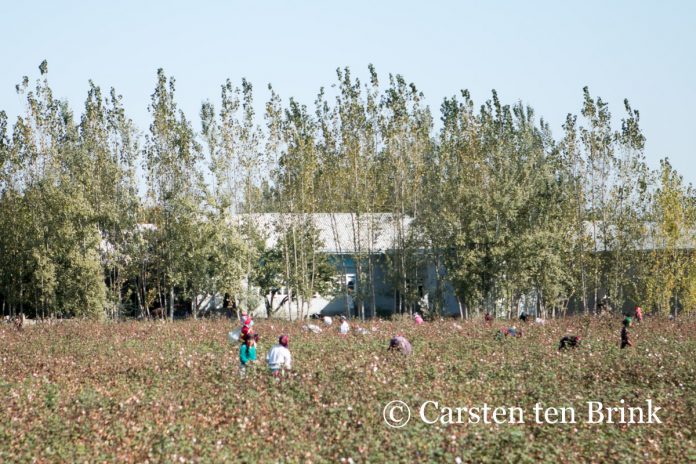In a town in eastern Uzbekistan doctors and nurses at a state-run medical facility are busier than usual on Fridays. They need to sweep the streets and clean up garbage before treating their patients.
“Our patients wait in lines for us to return from street-sweeping,” a doctor from Quvasoy’s state-run medical facility told RFE/RL’s Uzbek Service on July 6.
Speaking on condition of anonymity due to fear of reprisal, she said the town’s mayor, Adham Ziyavutdinov, was responsible for ordering medical workers to participate in compulsory clean-up duty, a practice that dates to the Soviet era.
“Authorities don’t think about the patients,” the doctor said. “We are doctors, our job is to treat patients, not to sweep streets.”
Several other employees at the medical facility, all of whom spoke to RFE/RL on condition of anonymity, confirmed that medics were assigned to clean-up duty.
RFE/RL reached the Quvasoy mayor’s office for comment but was hung up on after asking a question.
On April 17, Prime Minister Abdulla Oripov announced that forced labour, involving doctors, teachers, and other state employees was a breach of the law and should be investigated by prosecutors and other law-enforcement agencies.
Uzbekistan has long been criticised for the practice of forced labour in its cotton industry, but local activists say the cotton fields are not the only place where authorities exploit public-sector workers.
In other related news, the London-based Ethical Corporation is calling for boycott of Uzbek cotton. They warn of an environmental destruction that pales in comparison with human rights violations from the state-imposed system of forced labour.
For instance, children are even taken out of schools to harvest cotton, which has been in force since the days of the Soviet Union.
According to a new report by the Uzbek-German Forum for Human Rights, which monitored the 2017 harvest, there is evidence that state-sponsored forced labour continues, including in World Bank-funded cotton projects in the South Karakalpakstan republic, contrary to the bank’s loan agreements.
According to Hugh Williamson, the Human Rights Watch director for Europe & Central Asia division, and Steve Swerdlow, the Central Asia researcher, there are hopeful signs that Uzbekistan could shed its reputation as one of the world’s worst human rights abusers.
In an article they published in Eurasianet, Williamson and Swerdlow said several dozen political prisoners have been released. New laws – if effectively implemented – could be modest steps toward a more independent judiciary and freer civil society. And local media has become more lively, with topics previously seen as taboo getting an airing.
Yet this narrative should not overshadow another: The Uzbek government remains highly authoritarian, the security services retain huge power, free elections and political pluralism are distant dreams, and there are still thousands of people in prison on politically motivated charges.
“The government’s reform efforts undoubtedly face real challenges. These include too few well-trained civil servants, and local officials whose mentality has been shaped by decades of authoritarian rule. Ministries are hungry for know-how and best practices from Europe, the U.S. and other industrial economies (much less so from China and Russia).”

